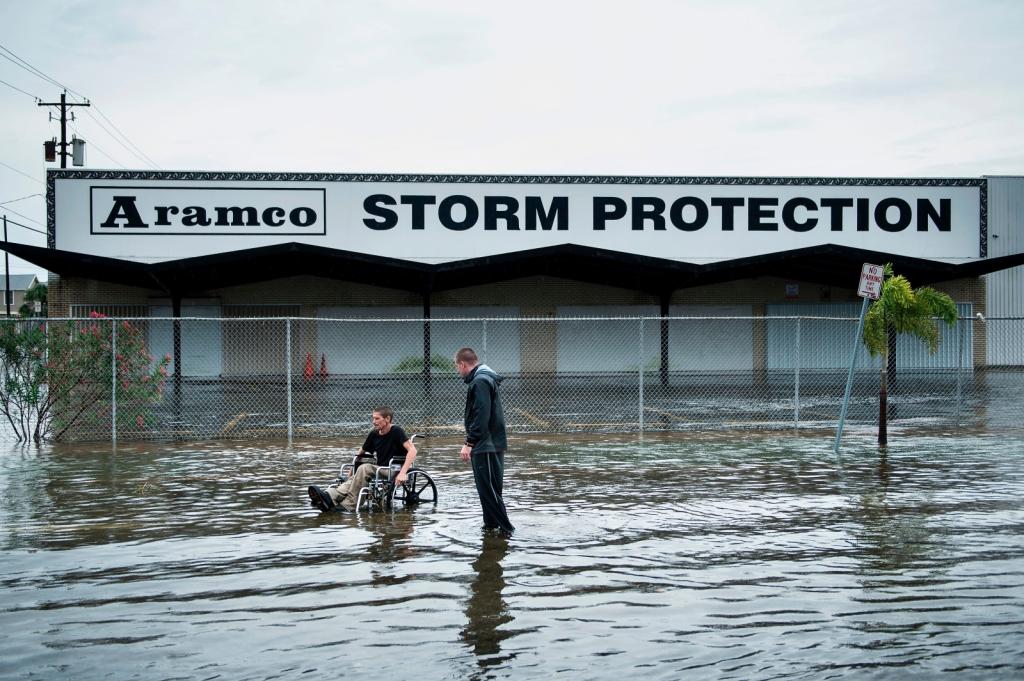If the 26th United Nations climate conference is remembered for one thing, it might be that it marked the first time world leaders finally addressed the elephant in the room: fossil fuels. In 2015, even as countries reached a historic agreement to limit global warming to “well under” 2 degrees Celsius (3.6 degrees Fahrenheit), nobody was talking about what that goal would mean for fossil fuel production. The emphasis was placed on lowering greenhouse gas emissions, not on what caused them. The words “fossil fuels” do not appear in the Paris Agreement.
But this month in Glasgow, two dozen countries promised to cut off their funding for fossil fuel projects in other countries by 2022. More than 40 countries pledged to phase out coal-fired power in the coming decades. On Tuesday night, the United Kingdom published a draft of the conference’s agreement that mentioned phasing out coal and fossil fuel subsidies — if the language makes it into the final text, it will be the first time “fossil fuel” has appeared in such a document.* And today, under the new Beyond Oil and Gas Alliance, or BOGA, seven countries and one Canadian province committed to end new oil and gas exploration and production.
“If we want to address the climate crisis, we need a managed but decisive phase-out of oil and gas production,” said Andrea Meza, the minister of environment and energy of Costa Rica, in a statement. Costa Rica and Denmark are the founding members and co-chairs of the alliance.
The other core members of BOGA that were announced on Thursday are France, Greenland, Ireland, Sweden, Wales, and the Canadian province of Quebec. New Zealand, Portugal, and the state of California were named as “associate members,” meaning that they have taken “significant, concrete steps” to reduce oil and gas production and support the goals of the alliance but are not ready to commit to fully ending production.
Most climate policy today is focused on reducing demand for fossil fuels. The idea is that oil and gas companies will respond to the shifting energy landscape of renewables and electric vehicles by slowing down production. But Collin Rees, a senior campaigner with nonprofit research group Oil Change International, said that’s a myth. He said the fossil fuel industry is trying to lock in demand for its products by exploring for new reserves and building new infrastructure like pipelines and export terminals.
“The industry is pushing to lock in this production, pushing to continue to extract oil and gas long beyond when we know that we can allow them to do that,” he said. “That’s why this is such a big deal. This is the first time at the international level that that has been recognized — that not only do we have to address the consumption of fossil fuels, but we really do have to limit production as well.”
A United Nations report released in October that analyzed the fossil fuel production plans of major economies warned that the world is on track to be producing roughly 110 percent more coal, oil, and gas in 2030 than would be consistent with limiting global warming to 1.5 degrees C — the more ambitious target laid out in the Paris Agreement. A separate, peer-reviewed study published in September found that 60 percent of the world’s oil and gas reserves must stay in the ground to achieve a warming maximum of 1.5 degrees C. At COP26, some of the world’s most vulnerable countries are fighting to keep the goal of 1.5 degrees C alive, as surpassing it could put many of them underwater.
BOGA member countries will not only end new exploration and drilling, but also pledge to phase down all of their fossil fuel production on a timescale that is in line with the Paris Agreement. Lars Koch, the policy director at ActionAid Denmark, a humanitarian organization, said this was a test for oil-producing countries. “If they don’t become members of this alliance, what they are actually saying is, ‘We don’t mean what we say about 1.5,’” he said. “It is just pure, deep greenwashing.”
None of the current member countries are major oil producers, and some, like Costa Rica, don’t currently have any oil or gas production. Denmark, which is the largest oil producer in the European Union, produced less than 1 percent of the oil that the United States did in 2019.
Joining BOGA doesn’t mean plugging every well tomorrow. The alliance will have to figure out how to align supply carefully with demand, and also aims to ensure the transition is socially just and equitable across the globe. That likely means not every country will be on the same timeline.
“BOGA will need to recognize the need for wealthy, economically diversified countries to phase out oil and gas production more rapidly than others,” said Koch. He hopes the alliance becomes a forum to design supports for developing countries that are abandoning potential revenues by leaving their oil and gas reserves in the ground.
Rees said that the alliance also raises the bar for who can credibly claim the title of “climate leader.” “You see some of the countries with the biggest plans for extraction of fossil fuels, both currently and over the next decade, trying to claim to be climate leaders,” he said, naming the U.S. and Canada.
Just as COP26 was starting, the Biden administration announced plans to lease hundreds of thousands of acres of public lands for new oil and gas development next February. And next week, the U.S. government will open up more than 80 million acres in the Gulf of Mexico to drilling. “This oil and gas ‘megasale’ will rank as the largest ever in U.S. history and more than breaks Biden’s campaign promise” to end drilling on public lands and waters, said Brittany Miller, press officer for Friends of the Earth, which sent a letter signed by more than 250 groups asking Biden to cancel the sale. The United States showed up to COP26 with hardly any policies in place to back up the country’s pledge to cut emissions in half by 2030. And while the U.S. did sign on to the international pledge to end fossil fuel finance abroad, it did not sign the pledge to phase out coal.
BOGA represents “an attempt to reground ‘climate leadership’ in some semblance of sanity,” said Rees, “to try to attach some amount of meaning to that phrase.”
*Correction: This article originally misrepresented the extent to which the words “fossil fuel” have appeared in United Nations climate conference draft agreements.



